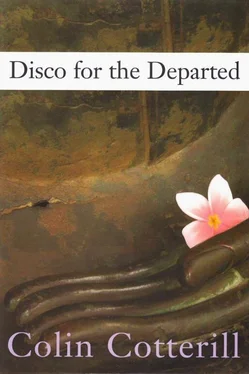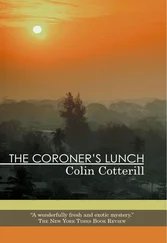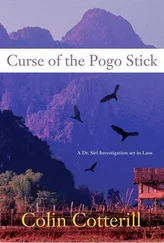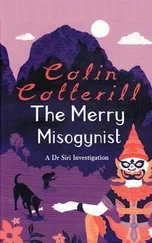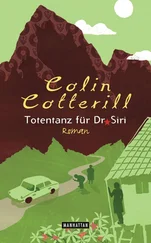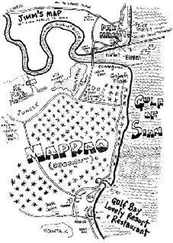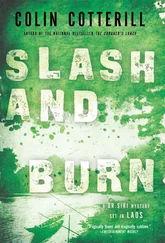Colin Cotterill - Disco for the Departed
Здесь есть возможность читать онлайн «Colin Cotterill - Disco for the Departed» весь текст электронной книги совершенно бесплатно (целиком полную версию без сокращений). В некоторых случаях можно слушать аудио, скачать через торрент в формате fb2 и присутствует краткое содержание. Жанр: Полицейский детектив, на английском языке. Описание произведения, (предисловие) а так же отзывы посетителей доступны на портале библиотеки ЛибКат.
- Название:Disco for the Departed
- Автор:
- Жанр:
- Год:неизвестен
- ISBN:нет данных
- Рейтинг книги:3 / 5. Голосов: 1
-
Избранное:Добавить в избранное
- Отзывы:
-
Ваша оценка:
- 60
- 1
- 2
- 3
- 4
- 5
Disco for the Departed: краткое содержание, описание и аннотация
Предлагаем к чтению аннотацию, описание, краткое содержание или предисловие (зависит от того, что написал сам автор книги «Disco for the Departed»). Если вы не нашли необходимую информацию о книге — напишите в комментариях, мы постараемся отыскать её.
Disco for the Departed — читать онлайн бесплатно полную книгу (весь текст) целиком
Ниже представлен текст книги, разбитый по страницам. Система сохранения места последней прочитанной страницы, позволяет с удобством читать онлайн бесплатно книгу «Disco for the Departed», без необходимости каждый раз заново искать на чём Вы остановились. Поставьте закладку, и сможете в любой момент перейти на страницу, на которой закончили чтение.
Интервал:
Закладка:
Few things in life could stop Nurse Dtui from speaking. It was her forte. She had smart responses for every situation-a witty comment to brighten even the most difficult of times. But for a full five minutes, she sat in the ward of the unconscious, and could think of nothing at all to say. She was as delirious as all the patients around her. She might have remained in that state for a good deal longer if Panoy hadn’t chosen that moment to come out of her coma. Dtui jumped up when she heard a sound. She turned to see Panoy sitting upright with her eyes staring directly at Dtui. Slowly, the little girl’s voice uttered a stream of Hmong language Dtui couldn’t understand. What was clear, however, was that her voice was not that of a child.
Once all the guests had vacated Guesthouse Number One and their belongings had been successfully pilfered, there was no longer a role for the guesthouse truck. The staff didn’t see any harm-as long as he put his own gasoline in the tank-if Siri borrowed it for the day. He’d heard there was a Vietnamese unit stationed up near Sop Hao, at the border. That same unit had been in Laos before the well-publicized but temporary Vietnamese troop pullout. It was the same unit to which Colonel Ha Hung had been attached. Siri decided it wouldn’t do any harm to visit the place.
He was enjoying the drive. Whereas the rest of the country was dying of thirst, the northeast still had enough rain to replenish the water in the hillside paddies. The late-morning sun reflected from them like broken pieces of a mirror stacked in jagged pyramids. Little girls, straight from their bath at the local pond, too young to feel shame, walked naked along the dusty roadside, wearing their sarongs as hats. A truck overtook his, carrying small pigs in light cane cages on their way to the abattoir. Their beady eyes streamed with tears.
The rice fields on either side were neatly laid out and well tended. Big spoon blossoms and itchy fruit lined the hedgerows. He passed a single temple, its doors padlocked. Hill tribe people carried baskets of twigs high on their backs and suspended from straps around their foreheads. Ponies with bells warned nobody in particular of their coming. A young man in the middle of nowhere hoisted a guitar over his shoulder. Without exception, every buffalo he passed looked up from its munching and watched the doctor’s progress. He felt happy to be surrounded by this unprecedented peace. He smiled to himself and his shoulders rocked to some unheard disco tune.
At one point he found himself driving along a newly laid road that suddenly stopped at a river. The bridge was five yards to the right. He had to leave the road to get to it. Once across, he had to drive along another dirt track to get back on the road. It was a fine bridge and the road was straight and level so this lack of coordination troubled him. He stopped to talk to the owner of the nearest shack, who explained that in Huaphan province, the Soviets were now responsible for bridge building. The Vietnamese had the road portfolio. Each resented the other. The Vietnamese weren’t the fastest of road builders, whereas the Russians had their bridges in place at exactly the contracted-for time. On roads that were merely being upgraded, this wasn’t a problem. But on new roads, the Vietnamese engineers sometimes arrived at a river with their road trailing behind them, only to find they’d missed the bridge by several yards. The Vietnamese refused to reroute the roads; the Russians had no intention of rebuilding the bridges. As Civilai often said, “The monk is in no position to return the alms if he doesn’t find them to his taste.”
By the time Siri had found the discreet, unsignposted unit of Vietnamese infantry it was already midafternoon. The Lao sentry at the turnoff swore on his grandmother’s grave there was nothing but trees at the end of the dirt drive he protected. Siri had the unit number and the exact kilometer marker, both provided by Central Command in Xam Neua, so he ignored the man and his shouldered rifle and turned into the drive. It was unlikely a solitary old doctor would be shot for attempting to invade a compound of militia.
A mile farther on, he found the camp: a well-organized, tented expanse that clearly housed more than just the one unit. He was stopped by a real guard in uniform at a weighted red-and-white barrier. The soldier was sharp with the doctor and within a minute was yelling Siri’s ID information into his walkie-talkie. As he waited, Siri took in the sight in front of him: foreign troops on his native soil. He felt resentful. The war was over, won. Why were these Vietnamese still here? He’d trained in Vietnam and done most of his doctoring there. Yes, Laos had a debt of gratitude to repay. Yes, it was true, she probably wouldn’t have defeated the Royalists without Vietnamese help and the present administration wouldn’t be sitting where it was. But enough!
A reply crackled over the wireless. The guard pointed out the officers’ tent and raised the barrier to let him pass. He drove down a slope and then up the rise upon which the foreigners were billeted and noticed permanent buildings here and there in various stages of construction. As soon as he skidded to a stop on the loose gravel in front of the main tent, a captain strode out to meet him. Siri recognized him.
“Dr. Siri.” The soldier smiled and shook his hand warmly.
As always, Siri’s Vietnamese took a while to warm up. “Captain Vo Chi. They didn’t tell me you were here. How have you been?”
“Alive and well, thanks to you, my good friend. I thought you’d have been put out to pasture a long time ago.”
“I was there, comrade. I smelled the daisies. I could almost taste the grass. Then I felt the lariat around my neck and I was hauled back to the knacker’s yard.”
In the mess tent, they ate and reminisced over the year or so Siri had traveled with Vo Chi’s division as its head field surgeon. But Siri wasn’t there to indulge in nostalgia. He had a long drive back and a lot of information to gather before he started. Siri gave Vo the name of the man he was interested in. Vo confessed he’d only vaguely heard of the colonel but recalled there was an old sergeant major at the base who had been with the commander for much of the campaign. Vo sent an officer to find him and bring him to the mess tent.
Although Siri was unable to place the face of Sergeant Major Giap, the old warrior recognized the doctor as soon as he entered the tent. He even remembered his name. There had been many battles, many units, many transfers, and so many men. Siri could hardly be expected to recall all of them. He got straight to the point.
“How did the colonel die?”
“In a Hmong ambush, Doctor.” The sergeant major replied directly but Siri noticed him cast a glance toward his captain. He wondered whether this was the official account of the colonel’s demise.
“When Colonel Ha Hung was stationed in Vieng Xai,” Siri continued, “I believe his family was with him.”
The sergeant major seemed much more relaxed about answering this second question. “Yes, comrade. His wife and daughter.”
“No one else?”
“No. Well… they had a moi maid who came over with them.” Moi was the derogatory term for the montagnards. They were to the Vietnamese what the Hmong were to the Lao: minority, ill treated, unloved. Siri noted in the timbre of the sergeant major’s voice that he had no respect for them.
“And you met the wife and daughter?” Siri asked.
“Oh, yes. Certainly. It was a long-term posting. We had the option of bringing our families along. My old lady was here at the time, too.”
“What was the daughter like?”
“Gorgeous. Hong Lan, her name was-Pink Orchid. She must have been about, I don’t know, seventeen at the time. She had more troops after her than the Hmong did. A little cracker.”
Читать дальшеИнтервал:
Закладка:
Похожие книги на «Disco for the Departed»
Представляем Вашему вниманию похожие книги на «Disco for the Departed» списком для выбора. Мы отобрали схожую по названию и смыслу литературу в надежде предоставить читателям больше вариантов отыскать новые, интересные, ещё непрочитанные произведения.
Обсуждение, отзывы о книге «Disco for the Departed» и просто собственные мнения читателей. Оставьте ваши комментарии, напишите, что Вы думаете о произведении, его смысле или главных героях. Укажите что конкретно понравилось, а что нет, и почему Вы так считаете.
